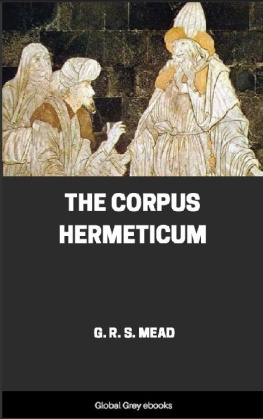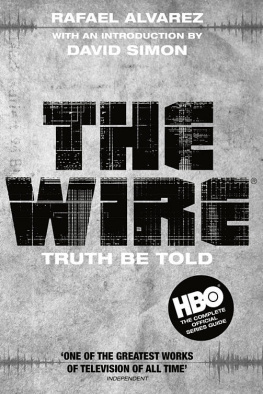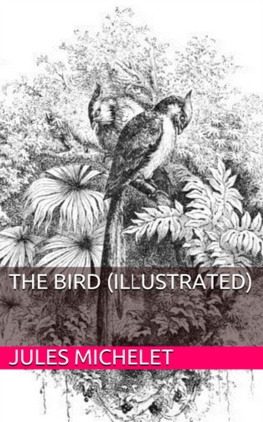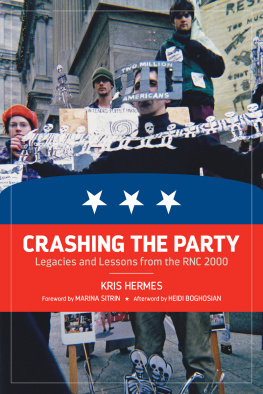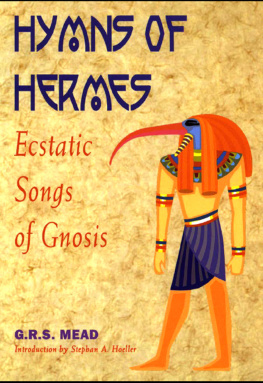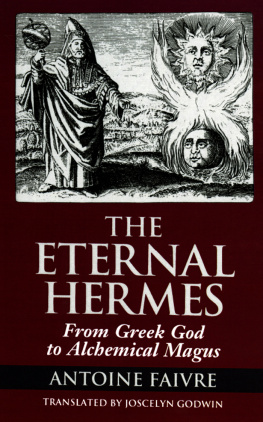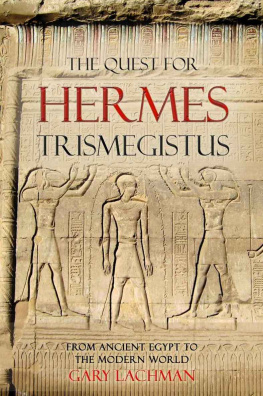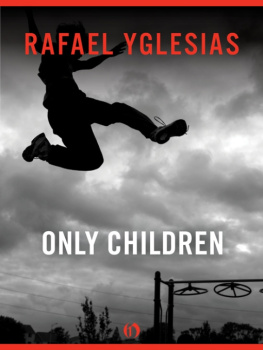Rafael López-Pedraza - Hermes and His Children
Here you can read online Rafael López-Pedraza - Hermes and His Children full text of the book (entire story) in english for free. Download pdf and epub, get meaning, cover and reviews about this ebook. year: 2020, publisher: Daimon, genre: Religion. Description of the work, (preface) as well as reviews are available. Best literature library LitArk.com created for fans of good reading and offers a wide selection of genres:
Romance novel
Science fiction
Adventure
Detective
Science
History
Home and family
Prose
Art
Politics
Computer
Non-fiction
Religion
Business
Children
Humor
Choose a favorite category and find really read worthwhile books. Enjoy immersion in the world of imagination, feel the emotions of the characters or learn something new for yourself, make an fascinating discovery.

- Book:Hermes and His Children
- Author:
- Publisher:Daimon
- Genre:
- Year:2020
- Rating:3 / 5
- Favourites:Add to favourites
- Your mark:
- 60
- 1
- 2
- 3
- 4
- 5
Hermes and His Children: summary, description and annotation
We offer to read an annotation, description, summary or preface (depends on what the author of the book "Hermes and His Children" wrote himself). If you haven't found the necessary information about the book — write in the comments, we will try to find it.
Hermes and His Children was originally published in 1977 and quickly became a classic among therapists, poets, artists and readers of every ilk around the world.
Cuban-born Rafael Lpez-Pedraza approaches the soul through myth, pathology, image and the very living of them all. The love and passion of a man fully in his element radiates throughout this unique and timeless work, now available in this revised and expanded edition.
Hermes and His Children — read online for free the complete book (whole text) full work
Below is the text of the book, divided by pages. System saving the place of the last page read, allows you to conveniently read the book "Hermes and His Children" online for free, without having to search again every time where you left off. Put a bookmark, and you can go to the page where you finished reading at any time.
Font size:
Interval:
Bookmark:
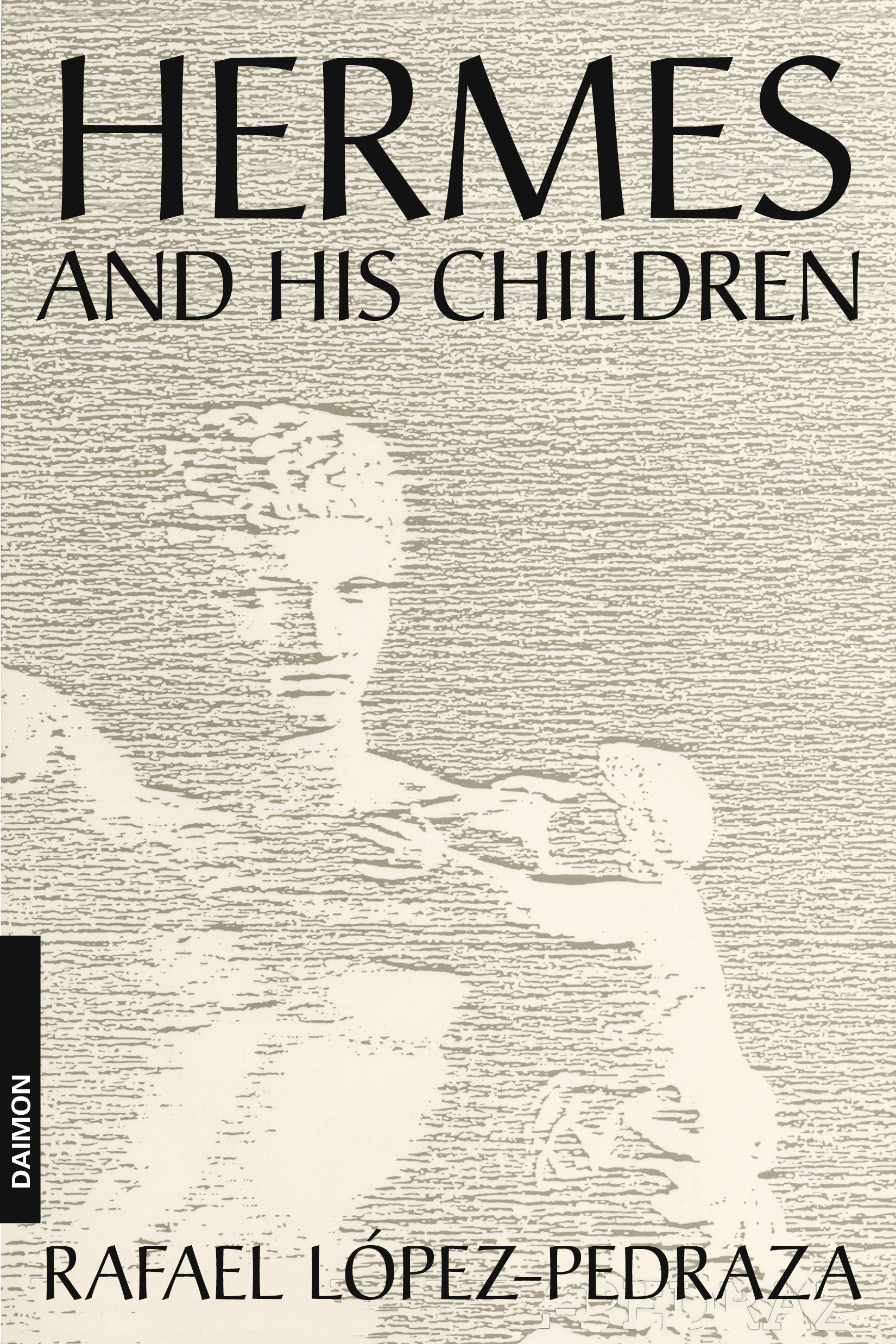
Rafael Lpez-Pedraza
Hermes
and His Children

DAIMON
VERLAG
An earlier version of this work was published by Spring Publications in 1977.
The present edition has been completely revised and expanded by the author.
All quotations and illustrations are acknowledged in the relevant places; references to Jung are from the Collected Works (CW) of C.G. Jung (Bollingen Series XX) translated by R.F.C. Hull, edited by H. Read, M. Fordham, G. Adler, and Wm. McGuire, Princeton University Press, Princeton, N.J., also published in Great Britain by Routledge and Kegan Paul, London.
Third Edition
ISBN 978-3-85630-905-3
Copyright 2020, 2003, 1989 by Daimon Verlag,
Am Klosterplatz, CH-8840 Einsiedeln, Switzerland
Cover design by Hanspeter Klin:
Apollo and Hermes adapted from an original Greek image.
All rights reserved. No part of this publication may be reproduced or transmitted in any form or by any means, electronic or mechanical, including photocopy, recording or any information storage and retrieval system without written permission from the publisher.
Contents
Foreword
The most important terms in modern psychology, though originally based on experience, have become theoretical conceptions and, nowadays, are little more than jargon, the meaning of which is taken completely for granted. In this book, my rather personal use of some of these terms is related more closely to the image I am dealing with, a more direct expression of the psychic reading of an image.
Let us take, for example, the term psychic movement, a term used consistently throughout the book. I consider that psychic movement is essential to a hermetic psychotherapy. More specifically, this term is of dramatic significance when we conceive of psychotherapy as devoted to moving, hermetically, that part of the psyche that has been paralyzed by the persons history or experience. It is not difficult, I believe, for the reader to imagine the complex mystery of illness in terms of fixation, paralyzation, or petrification. Unfortunately, in the course of his history, Western man has retained fewer and fewer ways to be initiated into his own psychic nature; initiation therefore became one of Jungs main concerns in psychotherapy: initiation into the repressed unconscious nature, which is fundamental to any healing. Now this is a view of psychotherapy in which Hermes, as the archetype of the unconscious, is the guide; most of the time, the only guide. For me, psychic movement lies not only at the core of psychotherapy, but also of life.
The way in which I use connect and connection-maker could perhaps be new for the reader. Hermes is known as the messenger of the gods; in other words, mythologically, he connects the gods and goddesses to each other and to man; thus he is the connection-maker. This is fundamental to an understanding of the variety of his appearances both in dreams, to which he gives his own significance, and in life, to which he gives his personal hermetic view. So when I use this term, it is with a very specific connotation. This book is based upon images, so let us imagine Hermes touching those spots where we are the most sorely afflicted, thereby connecting to them and, at the same time, connecting us to them. As the connection-maker, he gives us a new view of an episode in our lives, or of a pathology, which has been unconsciously dominant for too long. At the same time he reveals the psychic value in what had not seemed to be relevant or was hidden. In this way, Hermes is a god of transformation.
An understanding of the term archetype is fundamental to the studies of Jungian psychology. However, I would be content if the reader is prepared to accept my personal view of this term: that Western culture is archetypal at its Greek cultural roots (Homer and Hesiod), and that the use of the term archetype in psychology and psychotherapy is an attempt to use the legacy of those two first poets. Following in the same Greek tradition, we can only say that psyche learns through the archetypes.
The above two paragraphs should, I believe, be sufficient to give the reader an idea of the way in which I use other psychological terms. I connect the term transference, for instance, more to psychic movement than to its usual connotation. In the same way, psychotherapy, the books main concern, is viewed within a conception that goes far beyond an analytical treatment: Our survival requires that we live our life as if it were a constant psychotherapy, to let our psyche have priority, to allow it to differentiate between what is psychic and appeals to its unique nature, and what is not psychic, and to allow it to live the feelings and emotions that nourish it. This is the most immediate way to connect to our nature, instincts, and history, and to the life we live. In other words, psychotherapy in this sense is an attempt to make life as psychic as we can, to keep our psyche in movement. If we fail we must suffer the consequences of a psychic disturbance, an illness, or the most common consequence of a repetitive and stagnant life.
Hermes and His Children is addressed to the therapist who intuitively feels that his practice depends on the encounter of two psyches propitiated by Hermes, psychic hermetic encounters, through which healing can come. This is the realm of Hermes: messenger of the gods, master of persuasion, master thief, guide of souls, teacher of Asklepios, and the therapists inner companion in the solitude of his daily practice. It is in this realm that the therapist is liberated from the reductionism of preconceived theories and is differentiated from the many psychologies in todays world. It is here that psychotherapy is turned into a psychic creative work, where the therapist can begin to love his practice in the same way an artist loves his art.
Not least, this book is addressed to the general reader who, in his loneliness, feels the emptiness and stupidity of the times in which he is living, and who knows, secretly and hermetically, that some sense is given to his life in those scattered moments when Hermes, with his wand, mysteriously touches him.
1. Hermes Psychotherapy the Hermaphrodite
The premise of this book is to reflect the psychic dynamism of Hermes, this evasive god, in our daily lives. For this purpose, we shall turn to the classical legacy and to some scholarly works as well as to todays film-makers and the daily news of the world in which we live. As a psychotherapist, naturally my reflections come from my practice of a psychotherapy that gives a first rank to Hermes and whose main concern is with psychic movement: either we move psychically or we stagnate. I want to give to Hermes and his sometimes odd imagery an essential place in psychotherapy, to connect a hermetic imagination to healing, and to conceive the therapist as an image-maker. This requires a psychotherapy that is aware of mythological expressions of the psyche, that looks into the persons conflicts with a mythical imagination. In other words, it is a psychology of the archetypes, bringing with it an obligation to improve upon the basic study of mythology and equate it with the study of psychology. This remains an immense field for exploration.
This approach is well within the tradition of Jung; he was the first to give importance to Hermes in psychotherapy through his interpretations of hermetic symbolism and his alchemical studies, work which led to a psychology of depth. He was also the first to introduce the study of the archetypes into modern psychology, thus opening new ways for seeing into human nature and new possibilities of which we are still only partially aware. Historically, an approach to psychology via the study of mythology has probably appeared with a wider spectrum and clearer perspective in the present generation of Jungian analysts, who are contributing more and more to the study of the archetypes. However, I want it to be understood that I am in no way proposing a technique. The aim of a psychology based on the archetypes is to look through a situation in order to encourage psychic movement rather than to merely reduce the patients condition to its mythical counterpart. We need to read mythology and the scholars works to provide ourselves with the necessary background from which to reflect and come closer to the constellations that can appear in psychotherapy. Throughout our reading of mythology we have to continually be aware of the relationship between psychology and mythology to guard against missing the mark with our psychotherapeutic insights or being too caught up in the similarities of the mythologems to the patients situations.
Font size:
Interval:
Bookmark:
Similar books «Hermes and His Children»
Look at similar books to Hermes and His Children. We have selected literature similar in name and meaning in the hope of providing readers with more options to find new, interesting, not yet read works.
Discussion, reviews of the book Hermes and His Children and just readers' own opinions. Leave your comments, write what you think about the work, its meaning or the main characters. Specify what exactly you liked and what you didn't like, and why you think so.

